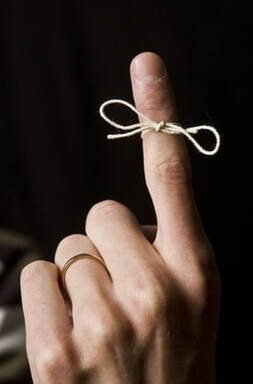|
Invitation not to let bad sensations accrue, not to allow untended thoughts to take you down the rabbit hole! Prioritize feeling good: this will connect you to your guidance system and let in the inspiration of the moment to keep moving toward love. 1. Take a breath. Take several conscious breaths. Watch the breath go in and out. Get absorbed by the breath. 2. Go outside and breathe there. Look into the sky. Experience what's out there with all the senses you can engage. 3. Exercise. Stretch. Run up & down the stairs. Go around the block. Do anything to move your body and focus your attention off the mind and onto your marvelous capacity to feel, move, inhabit a human body. Find someone on YouTube to guide you through some qigong or yoga or whatever. (Here's my favorite simple qigong sequence with Mimi Kuo-Deemer.) 4. Stay away from work, even mentally. Leave it alone and see what seeds sprout later. You've already given it great attention. Celebrate that. Let it go. 5. Feasting for the holidays? Chew more, taste more, give yourself full permission to eat whatever you choose to eat. Take long breaks between times of food intake—not to be righteous, but to enjoy the contrast and to be hungry again when you eat more. (Hydrate between meals!) 6. Do the unexpected, have an adventure, go somewhere you've never been, do something appealing that scares you or goes against how you see yourself. 7. Meditate, even for 5 minutes. You could even exit (physically or mentally) during a conversation you don't want to take part in and just watch your breath go all the way in, watch it go all the way out. Until you decide you're done, keep coming back to the breath when you stray from that focus. 8. Call someone you almost never talk to, or haven't talked to in a while, or even the one you've believed is too far from the last contact to justify any lasting connection: you connect if you're drawn to. (Follow the inspired impulse, not the thoughts about it.) 9. Feeling challenged? Tell yourself or another or write down all the reasons why this hard thing you're going through is perfect, the best training ground for what you know you need to develop in yourself. This is a moment to keep applying your own belief system and to take further whatever you've been experimenting with to live more consciously and be healthier and truer to yourself. 10. Unplug for a day (or days) from any computer activity, phone apps, social media. Include news in the exclusion. Walk away from political conversations if that feels better. 11. Sleep. Nap (30 minutes or less to stay out of deep sleep, 90 minutes for a whole sleep cycle). For naps and nighttime rest, be sure you go to sleep with a consciousness of RESET, of all things new/all things possible when you wake up. Want a bonus? Mind your feeling states! Bored? Irritated? Stung? Get more interested in how you feel than in the thing that made you feel that way (the apparent cause). Just take care of yourself, and move toward feeling better. Love & blessings, Jaya
0 Comments
Could it be there's no such thing as sacrifice? The more I ponder this, the more it all seems absurd unless there's lamb and blood involved. Some claims to sacrifice are transparently bogus, like—are you familiar with Project Runway? I was probably the last to know, but in case you're even less in the TV loop than I am, it's a reality show in which fashion designers fulfill a series of 24- or 48-hour challenges: make a party dress out of candy; make a high-fashion look out of flowers plus gadgets from a hardware store. Contestants (they're pretty adorable) represent a mix of straight and queer artistic types from various races and regions and even countries—so think accents, attitudes, affectations. Each episode culminates in a runway show with models presenting the designers' creations. Each time, one designer wins the challenge and one gets kicked out, so that the numbers gradually shrink until a final champion gets oodles of prizes. The show follows participants through sleep deprivation, ruthless competition, deadlines in swift succession, camera exposure during the uglies, and the ever-present threat of dismissal by judges who permit themselves the most scathing remarks (“It looks like she's pooping fabric”). Everyone's stuff comes up, emotions run high, drama prevails. But then, so do forgiveness and redemption, as contestants rally in mutual support over competition. Also, these people teach themselves they can do—in glorious and inspired ways!—what they weren't sure they were capable of doing at all. It's inspiring. Above all (and here's why I'm on this topic), participants have the huge honor of being one of sixteen, chosen from thousands who auditioned, to partake of this intense journey, experience the thrill of the challenge, get international exposure, and do what they love and are presumably good at in a seriously sought-after setting. Do I need to point out choice here? They choose to try out for this and are thrilled to be chosen by the judges. At some point in each season, there's always the moment when some (usually weeping) contestant, fearing they're about to be dropped or fiercely monologuing to the camera about why they must win at all costs, declares sacrifice: “I've sacrificed EVERYTHING to be here”; “I've made soooo many sacrifices for this show.” This is where I talk back to TV people. “You sacrificed NOTHING!” I yell. “You WANTED to do this more than anything else. Anything you did or gave up doing to be here was WORTH IT to you. It's a PRIVILEGE.” I might say these things gently to a client, but for some reason television brings out my evil-twin yelling coach. (My funny, sarcastic kid usurping the couch may be the reason.) I'm all for plugging in choice wherever you might catch yourself claiming sacrifice. I'm not fan of TV and have been an avid non-watcher my whole adult life. So is it a sacrifice to watch it with my fashion-fascinated kid? It's one of a handful of ways I've found to spend time with the current version of this ever-changing wondrous being. I got involved with Project Runway in particular because it's actually fun for me to watch, and we make the most of the banter it begs for. Before that, I watched the Bachelor with this same kid for a couple of seasons too (so much yelling at TV people!), then when I found I couldn't stand the utter idiocy going into round three, I stopped. Choice. With my younger extremely dyslexic kid, I choose to read aloud books about SWAT and military K-9 units and bombs—blowing-up stuff I'd rather blow off. Is this a sacrifice? Actually, it's pure love, and therefore pure bliss. I'm so in love with this character that I would—well, I'd sit around reading these things. If some handsome dyke showed up (say, a cross between Tig Notaro and—remember Grace Jones with a flattop?) and she wanted me to read those things aloud to her, I'd walk away thinking, Oh well, she sure looked good for a minute there. I bring up these parenting examples because people are notorious for claiming sacrifice as parents. I visited a bio page on someone's website and was stunned to find “self-sacrificing mother” in a string of positive descriptors. (I sat there for a fruitless moment looking for irony.) If you're not a parent, please keep reading: make parenting a metaphor for any realm of life where you might needlessly superimpose sacrifice. Anything you do as a parent, you do because you choose it. You choose it because it's what you most want for your child. You choose it because that choice makes you the kind of parent you want to be. I used to do without vacations and other dreamy things to have my kids in a Waldorf school. Sacrifice? Not a bit of it. I wanted my kids to spend half the day outside. I wanted them to card wool, carve wood, handle silk. All of this made me happy (whatever it did for them). It was a choice, and choice implies going for this and therefore not that. Do you want to claim you've sacrificed some that every time you choose some this? It's an option. Or you could feel great about choice. Contestants on Project Runway also love to talk about all their single mom or poor immigrant parents sacrificed for them, therefore they HAVE to win: they'll be letting their entire family down if they lose. Oh, the burden! They typically say this when they're in the top three, preparing for the final challenge, which takes place at the Rockefeller Center during the apparently famous (I'm sure I'd never heard of it before) Fashion Week. Really, sweetheart, if you've gotten that far, you can feel like a winner. Harsh, harsh reality if only one person gets to feel proud while everyone else has to disappoint their family. Harsh world where parents teach their kids they've sacrificed for them and the kids must now make it all worthwhile. Teach your kids you willingly do whatever you do for them. Teach them to become themselves, not that they owe you becoming who you want them to be. Teach them to give what they give with all their heart and no strings attached—by modeling this in what you do for them. Every once in a while (when I'm especially tired), I hear myself start to tell my kids all that I do in contrast to something they're not doing or haven't done (apples or oranges, anyone?). That's when I know it's time to course-correct, sort through my thinking, get crystal clear about my choices all over again. Am I giving more than I actually want to? Am I saying yes when I mean no? Have I gotten confused about what love is and what it isn't? (Is it time to go to bed?) Teach your kids excellent self-care and supreme self-honoring through your conscious choices and how you language your power to choose. I'm pretty sure we could go through at least three generations of erring on the side of teaching our AFAB (assigned female at birth) kids to prioritize themselves—choose for themselves over others when in doubt. I'm amazed when any human being believes they must cut off their own appendages to give others a hand up. It's a poor model for all concerned. Notice this false concept of sacrifice adversely affects the very ones it seeks to help, because it weirdly displaces responsibility to those receiving what's given (whether they asked for it or not!). Set yourself free and set them free by never saying such a thing again (ah, or correcting it when you do), and by holding a clear consciousness of choice. I've written before about cultivating a consciousness of choice to counteract victim mentality (chapter 22 of Scooch!: Edging into a Friendly Universe). You can't be a victim when you're in choice. When you're in sacrifice, though, victim is all you've got. Poor me, look at all I don't get because I'm being such a great mother (or whatever). You're no greater a mother/whatever than you choose to be. Choose well. Choose balance. Choose sometimes what's delectable just for you, just because you want it. And notice (drink in) all the joy and laughter and satisfaction you get from parenting these amazing beings in precisely the way you choose to parent. You haven't forgotten how badly you wanted this, have you? Are you a non-parent using this as a metaphor? Where do you sacrifice? See if you can plug in choice instead. See if it makes more sense and feels more empowering. Do you sacrifice to be in a couple? Oops—have a single friend remind you of the privileges, all you get that no part of you wants to do without, all the gains to you in consistently weaving it all together with that other seriously worthwhile (honestly, precious) human being. Do you sacrifice for the job? Wait, don't you want the prestige, money, reliable paycheck plus benefits? Do you sacrifice to be on the board? Are you kidding? Quit today! What if you called nothing sacrifice (except that bloody moment with the lamb), no matter how much you devote yourself with time, energy, skills, talent, money, or any and all resources? Do you want to give it or not? Choice is honest and clear and places responsibility squarely where it belongs. Choice is power. Between sacrifice and choice, every time, choose a consciousness of choice. Love and blessings, Jaya “The whole fight would've been avoided if I had remembered not to defend.” “I forgot to tune in to the pain body, so I couldn't get out of my head.” “I was so thrown off I forgot all about dropping judgments about myself and the reaction I was having.” Clients often bring me their dismay at what they fail to remember in the moment. I've written about catching yourself in the old way after you've set a new intention. (It's ch. 18 of Scooch!: Edging into a Friendly Universe, called "The Power to Change.") There, I emphasize that you can celebrate catching yourself—and then don't even bother with that first twirl-and-strike of the whole self-flagellation routine. In fact, think of it as step two in a three-part process: 1) set an intention for the new way, 2) catch yourself doing it the old way, and 3) course-correct toward the new intention. Catching yourself is good: it's the doorway between the old way and the new. In this writing, I want to look at the point of remembering—the moment you catch yourself. I want to invite you to create a lot of spaciousness around what's acceptable to you in terms of when you get there. Short version: Anytime is brilliant. Here's a totally random story from some random woman's life: we'll call her Jaya. If you're anything like her, you may, as she did, catch yourself giving—no, having given—your son the third terse lecture (in that many days) that went on too long about something that wasn't that big of a deal or even fully his fault. (My inner defender puts in, They didn't go on half as long as the lectures used to—but honestly, three sentences in and you're probably into useless reiteration.) So there it is, you caught yourself late in the game. What are your options? The most popular by far is self-flagellation, and, Americans, it's still on sale since Black Friday because you'll probably need extra to get through the holidays. Another option is to sit in the reality of where you are right now. That is, connect to and accept what's actually happening. It doesn't feel good to do this, especially if you have some story going about how you shouldn't be here, you should be beyond this, you should catch yourself much earlier in the process (none of which can be true, because here you are). So okay, it doesn't feel good to be still with what is and let it be. Still, it (really, truly) doesn't feel worse than self-flagellation, and it's much kinder, because it's just a matter of aligning with what's actually happening. In other words, it involves a letting go into what is, not a straining, stretching, contorting into what isn't. And while you're aligning—in the release and relief of that—there's the possibility of allowing or accepting. There's the possibility of what Byron Katie calls loving what is, but if that language feels too strong or somehow false, how about nonresistance? The very word brings in expansive breath. (Parenthetical, potentially life-changing musing: What if you didn't judge yourself, ever?) So I was sitting in the reality of where I was that day, in the driver's seat of the Ithaca Carshare pickup truck (named Beau), with my son in the passenger seat, and Silence sulking between us. But not for long, because I used the moment of remembering (that NOW moment) to fully take in and accept where I was—that being the tail end of that third lecture in so many days and the dismay of finding myself so off. I duly noted that I felt rotten about where I was, and directed some breath to the pain body, that place in my chest that likes to scream like a muted pressure cooker when things aren't going so well. I tell my clients to access the witness in those moments, and if you find you're witnessing with judgment, see if you can just scooch toward the compassionate, dispassionate witness. I scooched. Then I spoke frankly to my son. This went something like, “Buddy, I realize that I've been off for a few days and it upsets me to see myself being this way. I hate hearing myself talk to you this way. I'm a real fan of getting okay with whatever's happening and not thinking there's a problem, but look, I seem to keep reacting like there's a problem. I'm sorry for how that's affecting you. You know, it's possible to just say to someone calmly [here I inserted the super short and entirely neutral version of what I'd just lectured tersely about] and not go [here I inserted some obnoxious noises that were like a meaner version of how adults spoke in the old Charlie Brown cartoons].” (For the younger set: never any words, just semi-musical sounds used as filler to indicate the cartoon kids were stuck listening to and having to respond to what some grown-up was saying that of course had no import to them.) My son said something along the lines of, “I'm glad you notice all that, and [little smile creeping in] I'm really glad you know exactly what it sounds like.” This guy happens to be the best sport on the planet, and as soon as this exchange happened, it was over for both of us. (That is, besides my mental note to get quite clear with myself about what was throwing me off, which I later did—this requires trust that you will indeed get to it and that life or Source or the Universe, in the meantime, will hold it for you; thus, you can truly let it go for now and get present to the business at hand.) We had the truck because we were going to a tree farm to cut our own Christmas tree, and it was the day a bunch of Newfie dogs would be there to haul trees for people, so it was lovely to be there free and clear of tension. We had a great time and got the best tree ever, and a big happy dog named Captain did the drag-it-back-to-the-truck part. It's astonishing to me how often I remember to live in ease and joy and kindness and love. It's amazing that I can be light and present and connected so very often. The fact that I used to be a moody, depressive, overwhelmed victim accounts for the if-I-can-change-anyone-can mentality I bring to my work with clients. I honestly wasn't sure I could. And the thing that accelerated the improvements most was to stop judging myself, my process, how long things took, what I found myself doing again, and so on. (What if you didn't judge yourself, ever?) I learned to drop judgments (not stay out of judgments) and question my thoughts about everything (not be without thoughts) thanks to The Work of Byron Katie. When I started applying all of that to my judgments about myself and the things I believed I could or couldn't be, do, or have—that's when life started getting really good. Bring nonjudgment to the point of remembering. It doesn't matter at what point in the process you catch yourself. When you remember, you're there: You've remembered! You've caught yourself! Excellent! You may prefer to catch yourself when your tone first has the slightest edge of irritability or dismay, but honestly?--you may be in full-blown yelling mode when you come to. You may want to catch yourself when you first speak whatever hints of victim because it contains some I have to, or I can't, or something about how much you do and how hard you work and it's all on you—but you could in reality be two weeks into resentful tones and tense reactions before you notice what you're up to. It may feel great to catch that first nano-flash of your spouse warping weirdly into your parent, way, way, way before you start that pointless and misdirected resisting or confronting or sinking into whatever emotional ploy makes them quit what they're not even really doing. … Ah, dreamer, let it go. Sometimes you might catch yourself that early, and sometimes you just won't. Wherever you catch yourself is good. With that established, how might you remember earlier, or maximize your chances of remembering before being off for three days or weeks or months? On some level, you have to seek to hold onto what you're up to; that is, you need some system to keep it in view. In other words, if you have a vision, you need something to help you hold the vision. (I say there are just three things to do with a vision: have a vision, hold the vision, move toward the vision.) Because you're amnesiac by nature, like every other human being, put something in place to support you in keeping the new vision close at hand. If not, what's close at hand is the old well-rehearsed and -reinforced default, which you've taught yourself to go to for years and years. (This is already true if you're even 21.) You can do this by having a written statement of what you're up to that you review often (daily is lovely; having a day of the week when you sit with it again and check in with how you're doing works too). Post a reminder in a place you'll see it often—or several places: by the kitchen sink, near light switches, on the steering wheel of the car, on your bedside table, in a drawer. Find an image (or a statement in a cool font) that evokes the intention and set it as your computer's desktop background or your phone's lock screen. Talk about it, journal about it, blog about it. Create a piece of art about it and place it where you'll see it. Whatever you're up to, give it enough energy and attention and resources to keep it in view, keep it current, keep remembering. It's so easy to forget. It's not that hard to remember, though; in fact, remembering is effortless—it just happens when it happens. It 's a pretty sure bet that you're more likely to remember if you don't make remembering a miserable affair—justification to be awful to yourself. Love remembering, having fully expected to forget, and step into the remembering anywhere you catch yourself in the process: before your big toe even dips in is as good as when you're up to your thighs in it or well over your head. NOW is the only time you can call yourself back anyway. Now is all you've got for stepping toward your vision. Now is truly all you need: it's the only point of remembering possible. Love & blessings, Jaya |
Categories
All
|




 RSS Feed
RSS Feed